Asteroid City review: come and get lost with me in the cartoon desert with the space cadets
Another polarising film from Anderson hit all the right notes for me, a lover of very orange landscapes and Looney Tunes references
*mild spoilers that will not take away from the loveliness of the film below!*
Sometimes, a film’s setting is almost like character in itself. Maybe it’s a building, like The Grand Budapest Hotel, or the castle in Harry Potter. It might be a city, like the role Napoli plays in Nostalgia, or New York in Sex and the City/Gossip Girls/Friends. These settings have their own rich stories, ecosystems, and supporting characters that add substance to a film.
Asteroid City is the opposite. The vast desert, with its cartoonish cacti, slow goods trains rolling by stuffed with grapefruits, and a giant impact crater from which the town gets its name, is characterised by its emptiness. The desert is an absence of characters, people, life itself. We’re not really supposed to be able to survive there. Maybe that’s why the desert is such a captivating place. From Lawrence of Arabia, Dune and Wile E. Coyote, to spaghetti westerns and martian landscapes, we look at something that looks like it has nothing and think - maybe there is something.
With nothing much to see if you look around, people look up instead. To the stars.
It’s 1955. Asteroid City is a crater in the desert with a town attached, population 87. It has a diner, a a petrol pump, a motel, a car garage, and an observatory. Nothing much happens there, apart from an annual commemoration of an asteroid which smashed into the tranquil desert many years before. At the ceremony, a group of teenage geniuses compete for a science invention prize, with an audience of their parents, some astrophysicists, a blues band who missed the weekly bus, and a group of pious children and their angel faced teacher. All is going swimmingly until a spaceship appears and an alien descends to pinch their treasured lump of meteorite and zoom back into the vastness of space. The US government goes into postwar-red scare-UFO paranoia and puts the town and everyone in it into lockdown.
Summarising Asteroid City is difficult because it’s what I like to call a meandering film. There’s no clear goal. In that way, it’s very similar to the Darjeeling Limited, which also split Anderson fans down the middle (not me! I loved it! So did my grandma!). We don’t know what the characters are working towards or aiming for. Yes, the space cadets and junior stargazers are there to show off their inventions and potentially win a big cash prize. It’s a snapshot of a place and the people in it, the relationships they forge while stuck together behind a military barricade, and how they interact with their environment. They’ve all witnessed this remarkable event, this interaction with the extra terrestrial, and have to process that whilst also processing the fact that this event has led to them being stuck in this goddamn desert. The people there to observe the cosmos end up stuck in a microcosm of their own and try to figure out their place in it
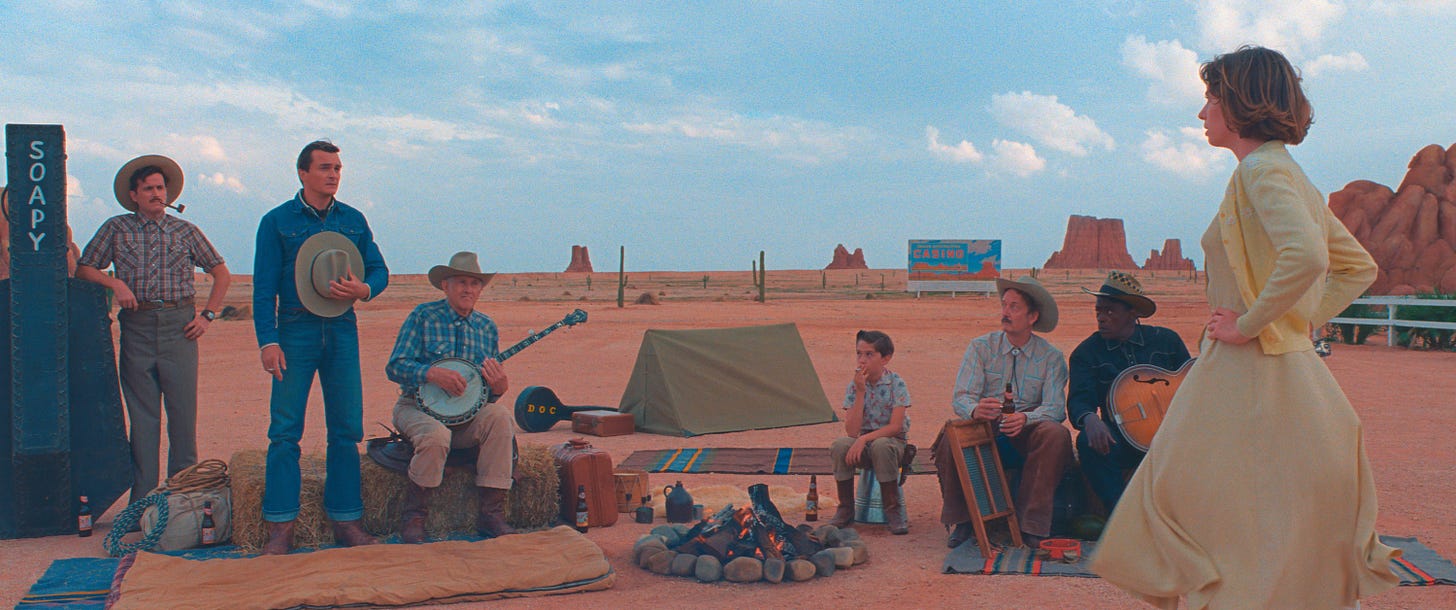
There are lots of little subplots. The sexual tension between two single parents who struggle to connect to their children. The small group of high IQ teenagers who, rather than being social outcasts in a normal adolescent setting, are suddenly in the company of others like them. An emotionally distant father who has to tell his children that their mother died a few weeks ago, and that what remains of her is now in a tupperware. The primary school teacher desperately trying to teach her class about the solar system when all they want to talk about is aliens. All the while, the colourful scenes we see in the desert are juxtaposed with a “behind the scenes” look at the writing process of a play called Asteroid City, which happens to be the film that we’re watching, where many of the characters from the desert are presented as “real life” actors. It’s complicated to describe but makes perfect sense on the screen. Just go see the film.
I don’t know why this film delighted me so much. I’m not into space or aliens or UFOs. I guess this film isn’t really about any of those things - it just provides the setting. It’s about a weird moment in history - just after the war, and just before the countercultural revolution. It’s twee Americana and it’s optimistic. It’s all the mythology of Los Alamos and flying saucers against a luscious orange landscape. As the general presenting the science contest says in his speech - ‘if you wanted to live a nice, quiet, peaceful life, you picked the wrong time to get born.’ Things were exciting and unknown. And then an alien does actually land, and it becomes very real.
Funnily enough, with Oppenheimer out now, we have the opportunity to observe the desert landscapes with giant mushroom clouds from wildly different perspectives.
This sense of wonder and discovery is not really something the adults in the film experience, for the most part anyway. The three little girls (marvellously named Pandora, Andromeda, and Cassiopeia) run around the town in witch/fairy/vampire costumes, cast spells on the tupperware containing their mother’s ashes, and generally cause mischief. The teenage geniuses up for the science prize buddy together, “borrow” some equipment from the observatory, and attempt to intercept signals from space (as well as making some extremely not allowed phone calls. The adults? They’re left to deal with the mundanity of reality. Grief, ambition, parenthood, missed buses, complaints to customer services, and sons who have potentially leaked state secrets and are in big trouble with the government. Teenage boys! What are they like.
But there is one exception: the physicist Dr. Hickenlooper, played by Tilda Swinton, who seems to have kept her childlike sense of wonder. There’s a throwaway comment at one point where she’s helping two of the teenagers in the observatory, and muses about the fact that she’s never had children, and perhaps she should have maybe wanted them. It’s not really an admission of regret; more an observation of missing out on something because you never wanted it, and wondering if that’s something to be sad about.
That’s not to say that becoming a parent makes you lose your sense of wonder. It’s becoming an adult that does that. Dr. Hickenlooper has managed to retain the best of childhood whilst clearly excelling professionally as an academic. She is the adult who understands the teenagers. Even their own parents, sipping on cocktails made by the automatic drinks machine, comment that their children aren’t really normal. Hickenlooper doesn’t see that, clearly as the sort of adult that these teenagers will turn into. Her work at the observatory is a vocation, a calling, and she will stay in Asteroid City after the dust has settled and everyone else goes on to live their lives - until the next Asteroid Day, where the next group of teenage geniuses will hopefully - or unfortunately - no have their ceremony disturbed by an alien.
It’s taken me a few weeks to get to grips with this review, mostly because it’s polarised audiences, and even Anderson fans. Some people love it, others hated it. I didn’t know how to talk about it or how to describe the play embedded in a film. But it’s ok, I don’t have to do that. I just need to think about how it made me feel.
When I was a wee gal, the most worn out cassette tape I had was The Bugs Bunny/Roadrunner Movie, which I watched over and over again until I peed my pants from laughing so hard. Amongst the legendary and iconic What’s Opera, Doc? and Duck Amuck amongst others, it was Wile E. Coyote’s fruitless attempts to catch this damn Roadrunner that tickled me the most. The landscapes of these cartoons, which after some rewatching do sort of blend into one, are so similar to what Anderson has done in Asteroid City. So maybe that’s it for me. It’s comforting and familiar. It reminds me of being a kid and the joy of watching something over and over and over again. In that orange desert, there’s only fun to be had!
But let’s not forget the Anderson-ness of it all. The symmetry, the pastels, the absurdity of having vending machines for bullets and land nestled amongst things you’d expect to see. The star-studded cast is superb and full of surprises, and the tweeness is balanced out by a sort of cosmic existentialism. Sure, maybe that’s not for you. For me, it made me feel dreamy again. If you want to feel a little dreamy yourself, go get lost in the desert for a couple of hours with the Space Cadets.
Asteroid City is showing in loads of cinemas right now! And available on Google Play, Apple TV, Amazon Prime, and YouTube.




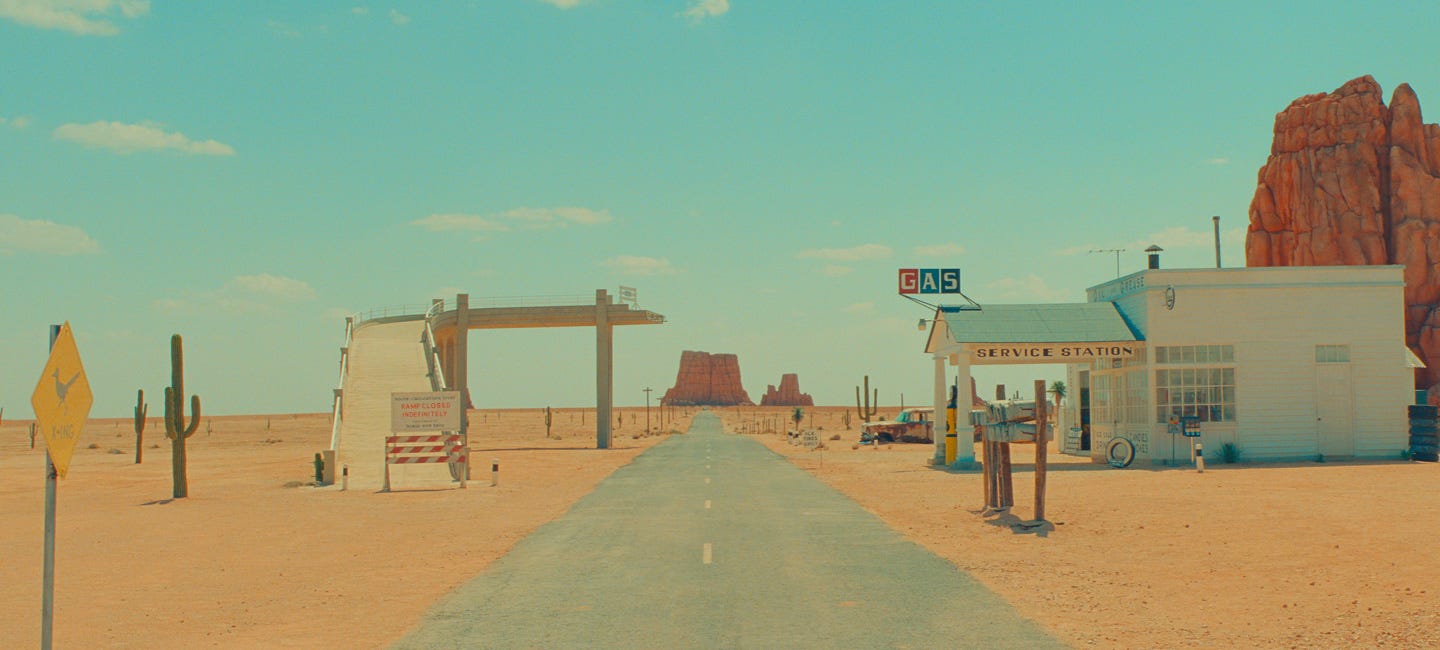
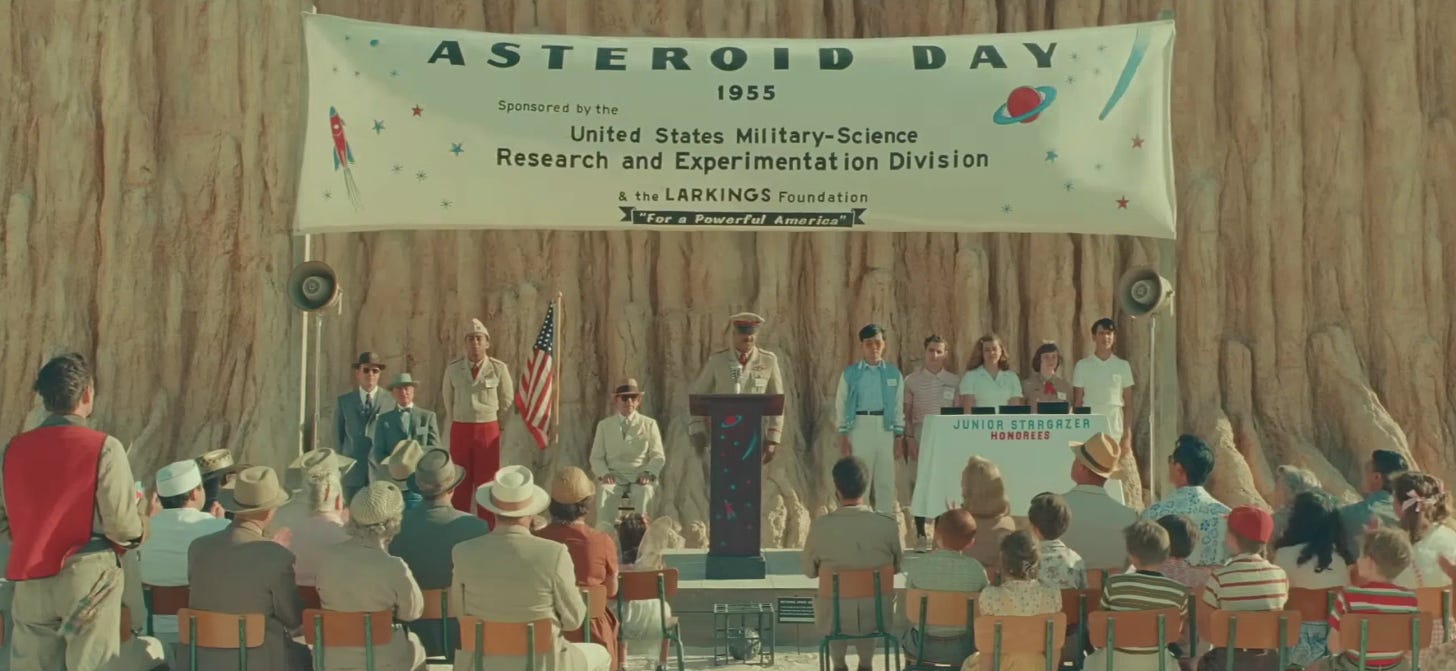
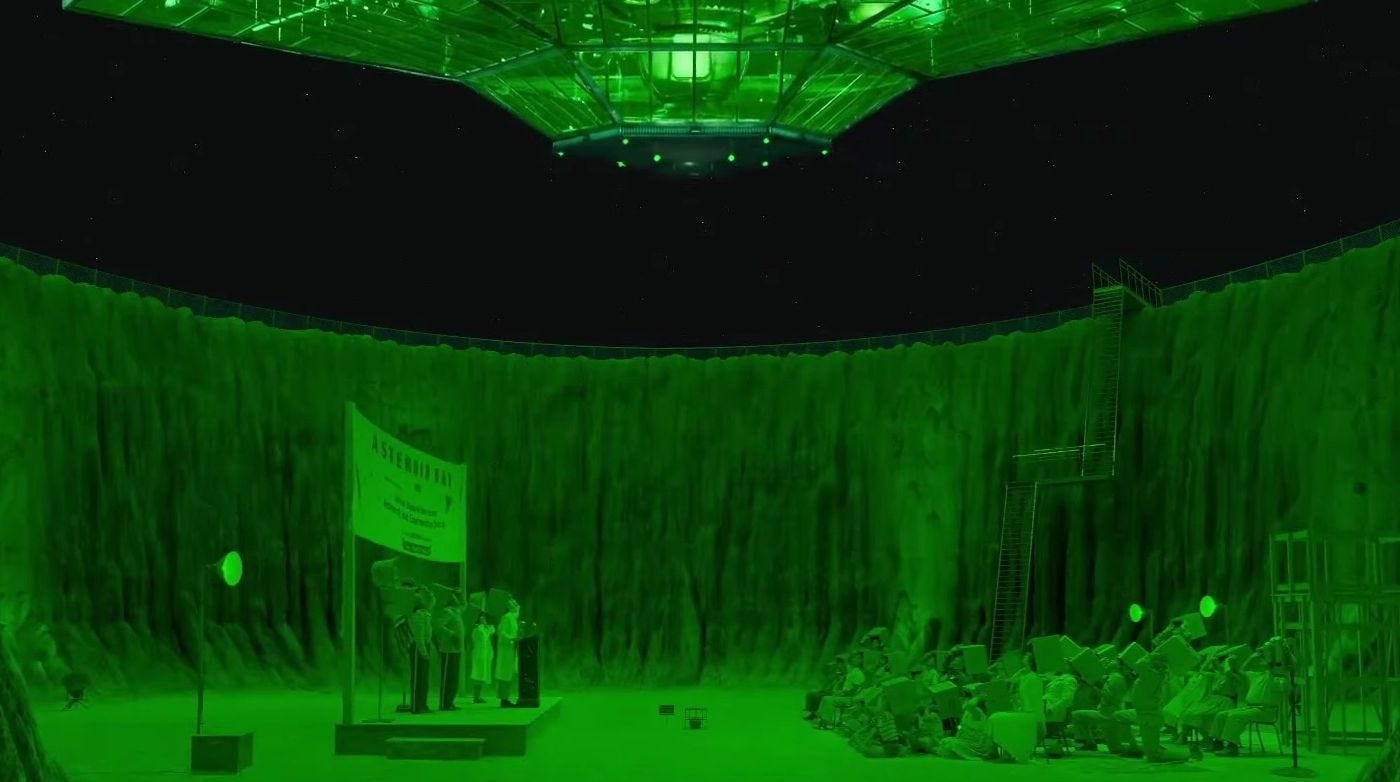
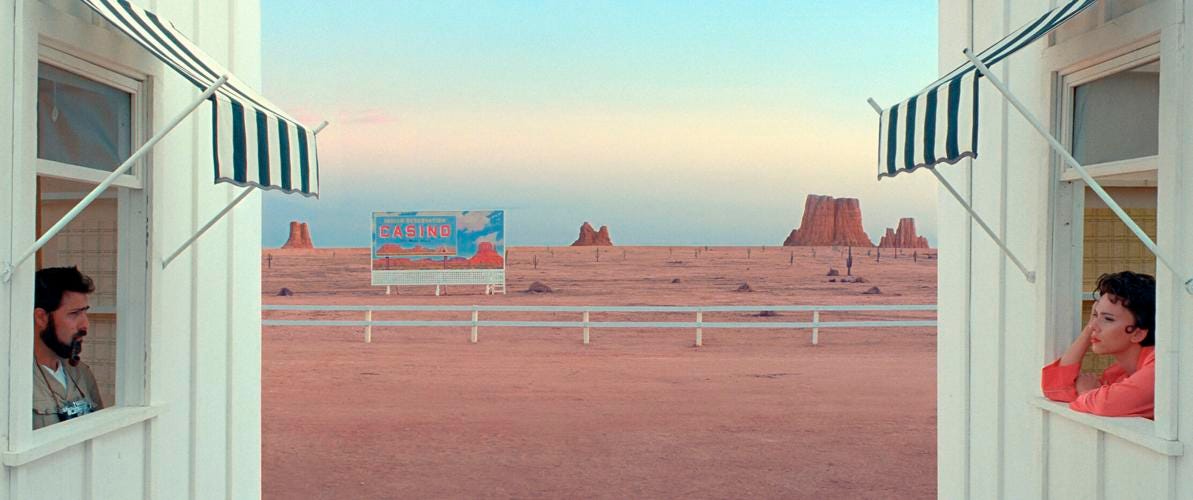
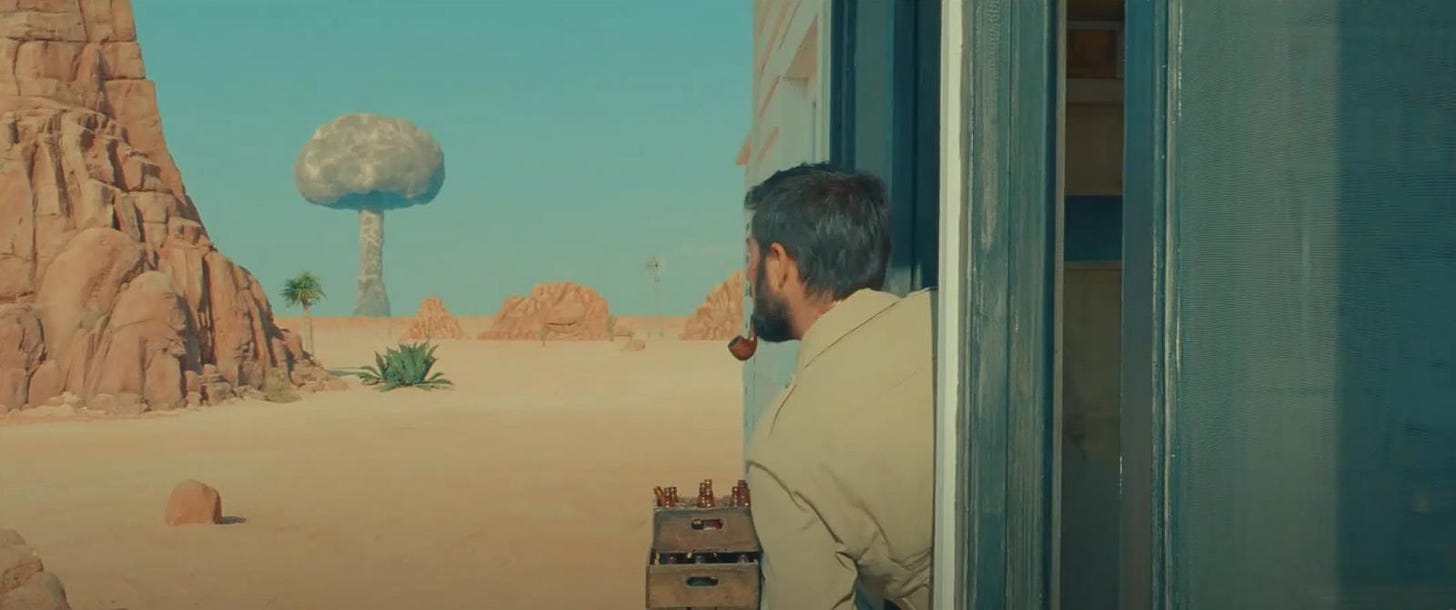
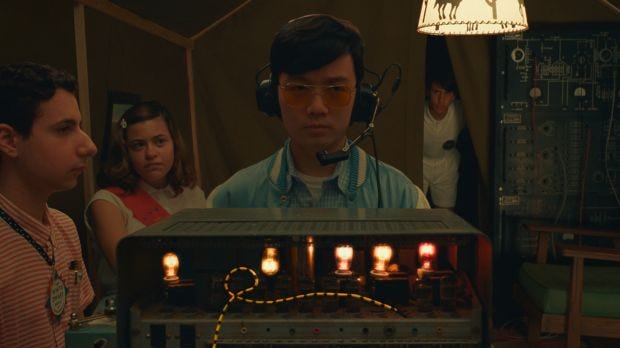
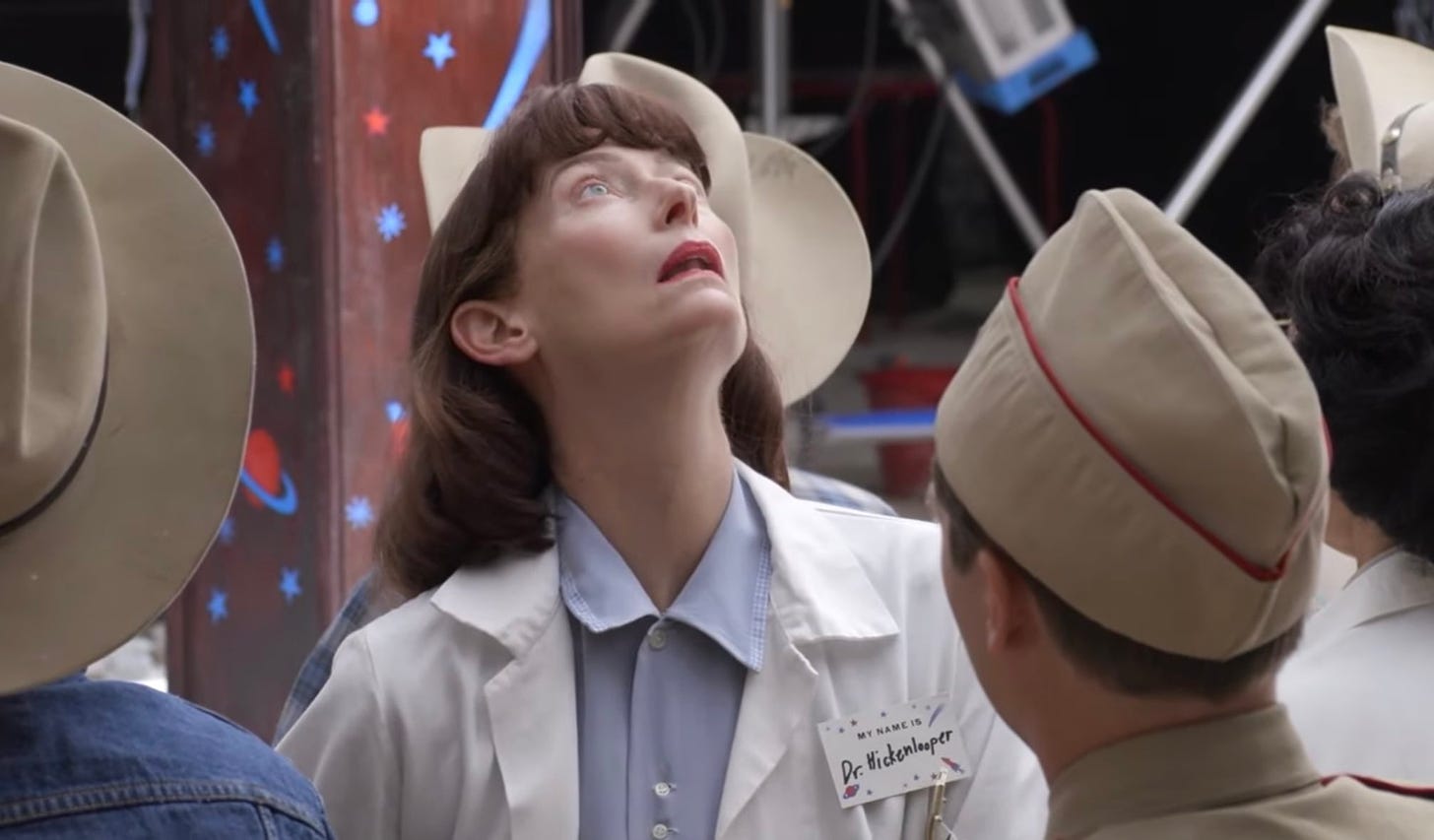
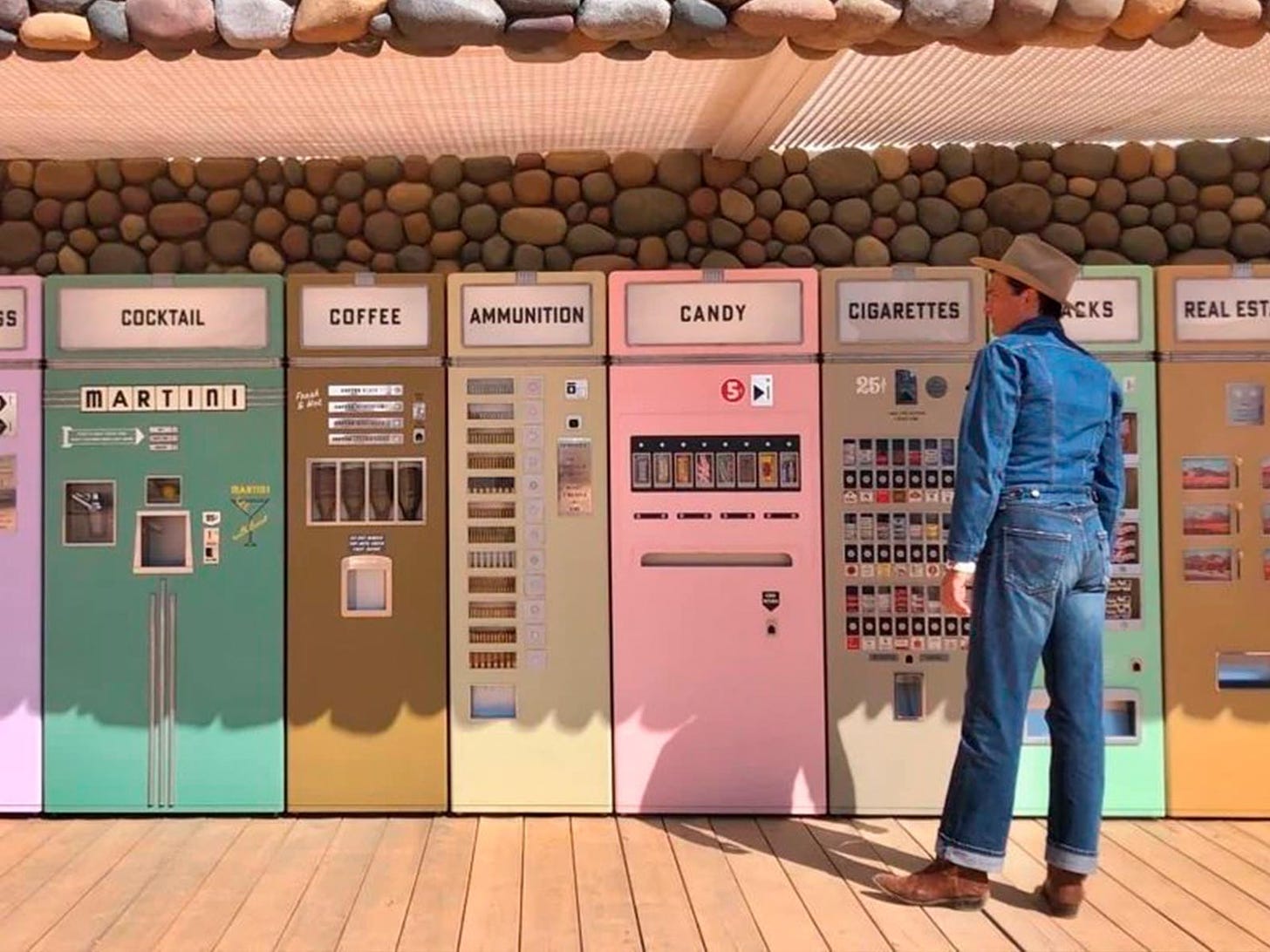
my favourite bit was adrian brody in that slutty t-shirt!